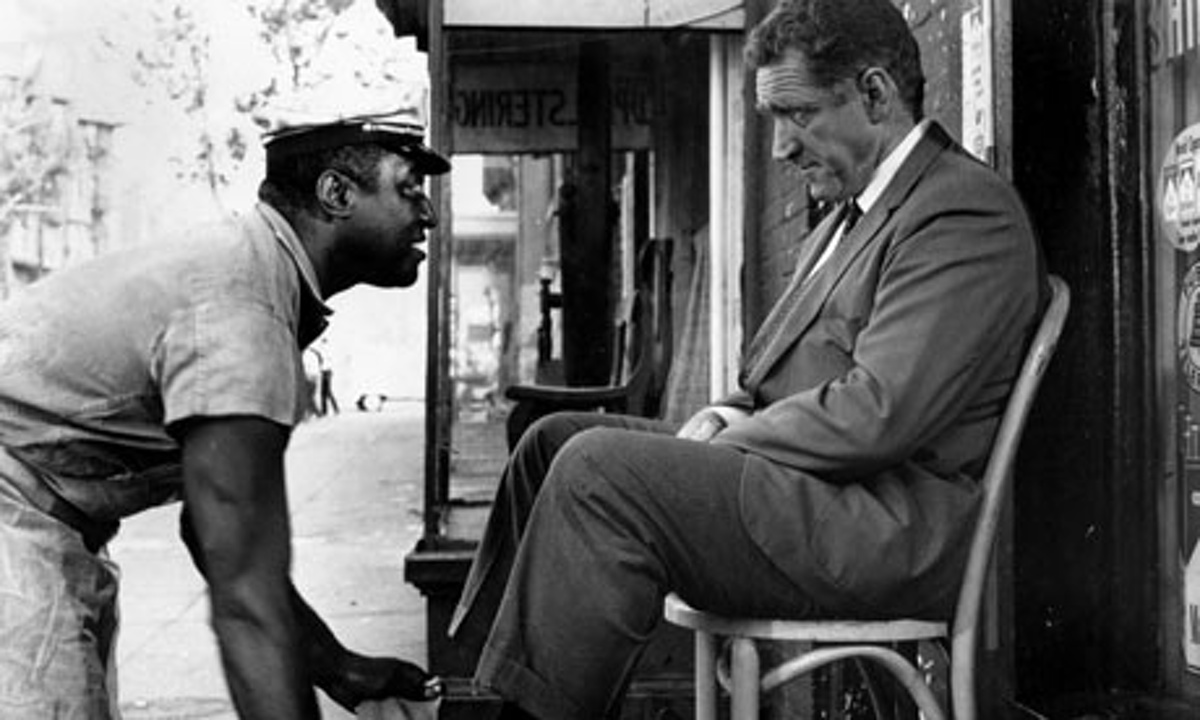African American
Related: About this forumRereading: Black Like Me by John Howard Griffin
Actually the article is from 2011. It is 61 years ago.
Fifty years after John Howard Griffin darkened his skin and travelled through the segregated US south, his record of the fear and prejudice he experienced is still resonant

One day in 1964 John Howard Griffin, a 44-year-old Texan journalist and novelist, was standing by the side of the road in Mississippi with a flat tyre. He saw a group of men approaching him. Griffin assumed the men were heading over to assist him but instead they dragged him away from his car and proceeded to beat him violently with chains before leaving him for dead. It took Griffin five months to recover from the assault. The attack was not random; the beating represented a particularly brutal form of literary criticism: Griffin was being punished for having written a book. Black Like Me, the book in question, had been published three years earlier in November 1961 and it had led to its author being both venerated and vilified. Griffin, a lantern-jawed and chestnut-haired white man, deliberately darkened his skin and spent six weeks travelling through the harshly segregated southern states of America, revisiting cities he knew intimately, in the guise of a black man. On the opening page Griffin set out the question he was attempting to answer: "What is it like to experience discrimination based on skin colour, something over which one has no control?" No white man could, he reasoned, truly understand what it was like to be black, because black people would never tell the truth to outsiders. "The only way I could see to bridge the gap between us was to become a Negro," Griffin writes. "I decided I would do this."
He visits a dermatologist who prescribes medication usually given to victims of vitiligo (a disease that causes white spots to appear on the patient's skin) and he supplements the medication with sessions under a sun-lamp and by shaving his hair and rubbing a stain into his skin. In one of the most powerful passages in the book Griffin describes the shock of seeing his new self in the mirror for the first time. "In the flood of light against white tile, the face and shoulders of a stranger," he writes, "a fierce, bald, very dark Negro glared at me from the glass. He in no way resembled me … I had expected to see myself disguised, but this was something else. I was imprisoned in the flesh of an utter stranger, an unsympathetic one with whom I had no kinship … I looked into the mirror and saw reflected nothing of the white John Griffin's past. No, the reflections led back to Africa, back to the shanty and the ghetto, back to the fruitless struggles against the mark of blackness."
Startled by how little of himself he recognises, Griffin sets off on his journey and is further shocked by how little he recognises of his own country: the man who shines his shoes every day does not recognise him, the restaurants he usually eats in are no longer open to him, and he has to plan ahead if he wants to use the bathroom or drink from a water fountain. White folks either treat him with extravagant politeness – when they are on the hunt for black girls or they want to inquire about his sex life – or they give him what Griffin describes as "the hate stare". "Nothing can describe the withering horror of this," he writes, "you feel lost, sick at heart before such unmasked hatred, not so much because it threatens you as because it shows humans in such an inhuman light. You see a kind of insanity, something so obscene the very obscenity of it terrifies you. I felt like saying 'What in God's name are you doing to yourself?'" Being exposed to the hate stare, witnessing racism from the other side, leaves Griffin sad and angry; he grieves at how "my own people could give the hate stare, could shrivel men's souls, could deprive humans of rights they unhesitatingly accord their livestock". He concludes that "the Negro is treated not even as a second-class citizen but as a tenth-class one."
Read it all.https://www.theguardian.com/books/2011/oct/27/black-like-me-john-howard-griffin
madaboutharry
(41,290 posts)It was very moving and terrifying. That there were moments he feared for his life was heartbreaking.
The ugliness and irrationality of racism is laid bare.
PoindexterOglethorpe
(26,607 posts)teacher lent me that book. As young as I was, he clearly thought I'd learn from it. And I did, as much as I possibly could, given my ate and inexperience.
Clearly I need to reread it. . . . And I just put it on hold at my library. I'll be able to pick it up in a couple of days.
Thank you for reminding me about this book. I have thought about it at various times over the years, but only read it the once. I know I have forgotten almost everything from it.
Diamond_Dog
(34,500 posts)How times have changed for the worse! The ignorant racists are probably trying to have this book banned.
LoisB
(8,517 posts)murielm99
(31,411 posts)How do black people feel about this book? I have never asked anyone.
brer cat
(26,126 posts)I read this book in high school and found it very eye-opening. I need to find a copy and read it again.
JustAnotherGen
(33,344 posts)This was one of the carefully curated books my parents bought me - and we read and discussed together.
Way better than sneaking Sidney Sheldon books!![]()
I was a black child - of bi-racial parents - and it gave me a depth of tenderness towards my dad, in the same way Night did my mom's paternal grandparents, and her dad.
Like - he lived - what Griffin only EXPERIENCED.